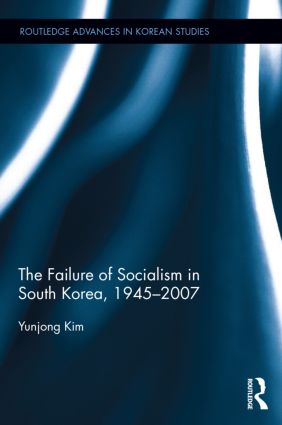Description
Shipping for this item is FREE, please allow 15 days for shipping. As its shipped from our Auckland warehouse there is no unexpected import charges, custom duties or taxes.
Condition: BRAND NEW
ISBN: 9781138914056
Year: 2015
Publisher: Taylor & Francis
Pages: 190
Description:
Despite the fact that socialist parties have proved to be a major political force across the world, this has not been the case in Asian countries. Socialism in South Korea is a quintessential example of this failure. Despite the existence of a socialist party and what would seem to be the right conditions for development, the Korean socialist tendency has failed to become a meaningful force in politics.
This book explores why and under what conditions Korean socialism has failed to develop into a social democrat movement in the post-war period. Within the context of the integration of structural and agency factors, it goes beyond the generally accepted view that the left failed because of suppression by the state and proffers that the real reason why socialism failed lay with its inability to develop beyond revolutionary socialism and build a more pragmatic social democracy that could develop a broad alliance within Korean society.
Also drawing on examples from Western Europe and Latin America, where left-wing forces have achieved power, this book will be of huge interest not only to students and scholars of Asian and Korean politics, but also socialism, comparative and international politics alike.
Condition: BRAND NEW
ISBN: 9781138914056
Year: 2015
Publisher: Taylor & Francis
Pages: 190
Description:
Despite the fact that socialist parties have proved to be a major political force across the world, this has not been the case in Asian countries. Socialism in South Korea is a quintessential example of this failure. Despite the existence of a socialist party and what would seem to be the right conditions for development, the Korean socialist tendency has failed to become a meaningful force in politics.
This book explores why and under what conditions Korean socialism has failed to develop into a social democrat movement in the post-war period. Within the context of the integration of structural and agency factors, it goes beyond the generally accepted view that the left failed because of suppression by the state and proffers that the real reason why socialism failed lay with its inability to develop beyond revolutionary socialism and build a more pragmatic social democracy that could develop a broad alliance within Korean society.
Also drawing on examples from Western Europe and Latin America, where left-wing forces have achieved power, this book will be of huge interest not only to students and scholars of Asian and Korean politics, but also socialism, comparative and international politics alike.

